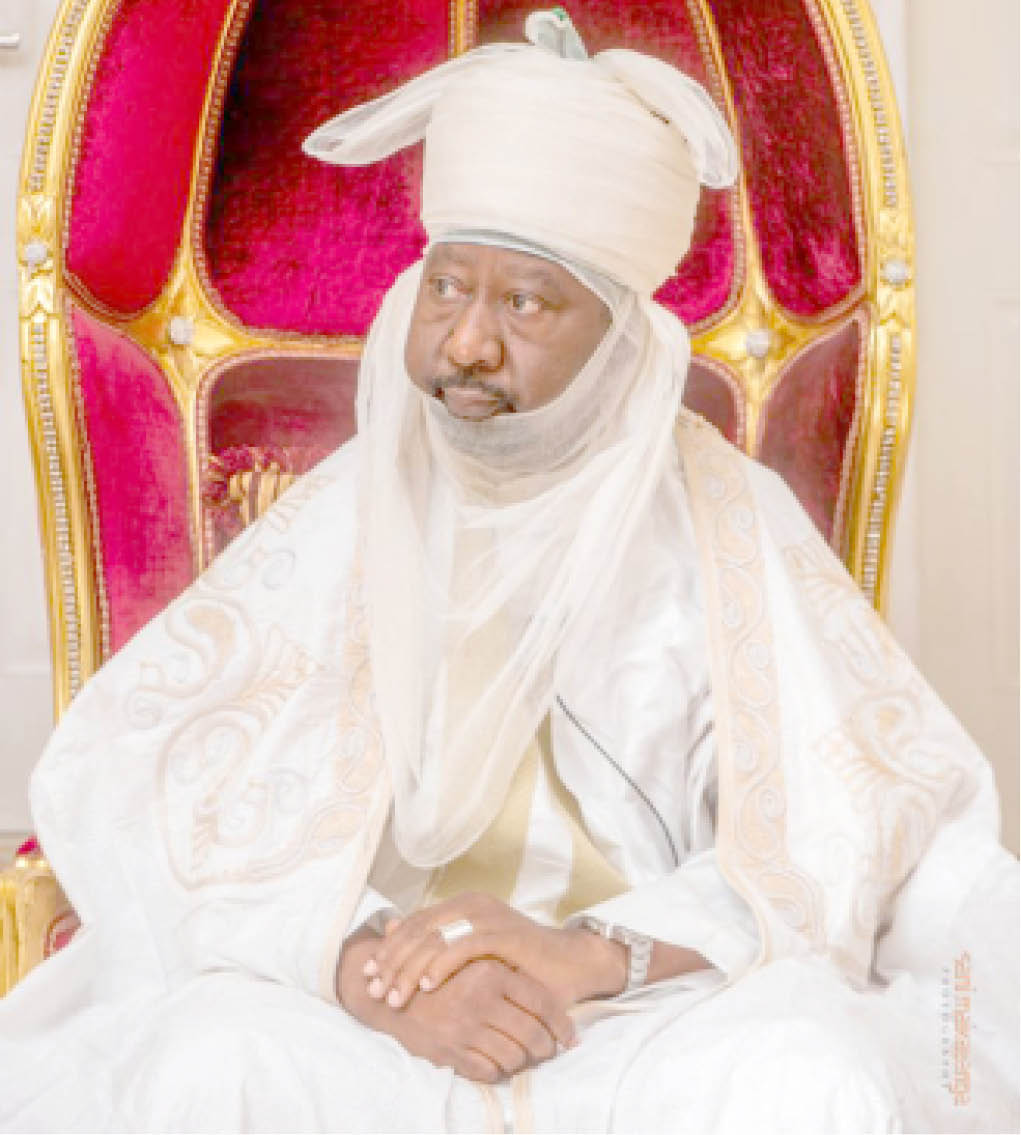Muhammad Garba
The presentation of staff of office to His Highness, Alhaji Nasir Ado Bayero, the second Emir of Bichi on Saturday, August 21, has set the stage for the consolidation of the four new Emirates in Kano state.
The Emirates were created by Governor Abdullahi Umar Ganduje as part of his administration’s effort to not only make the institution stand the test of time and move in the same pace with the global world, but also accommodate the development and socio-economic needs of the people.
The coronation ceremony was attended by a powerful federal government delegation sent by President Muhammadu Buhari; under the leadership of the Chief of Staff to the President, Prof. Ibrahim Gambari; some state governors, senators, members of the House of Representatives, technocrats, politicians and businessmen, among other prominent Nigerians.
Bichi town, which is about 30 kilometres away from the city, is the headquarters of the Emirate and consists of nine local governments which include Bichi, Bagwai, Shanono, Tsanyawa, Kunchi, Makoda, Dambatta, Dawakin Tofa, and Tofa, was created alongside Rano, Gaya and Karaye, all of which used to be districts under the Kano Emirate Council. It is also home to business people, academics, technocrats and politicians.
The former Ciroman Kano’s appointment as Emir was based on Section 1 Sub-Section 13 of the Emirate Council Law 2019 which empowers the state governor to appoint new emirs in the state after the government created four additional first class emirates.
The law provides that there will be individual emirate councils in all the new emirates which membership is drawn from the Emir, who heads the council of his own domain; an imam from the emirate; representative of the business community; and other identified groups of people.
It also stipulates that there is going to be a central council of emirs that will consist of all the five emirs in the state as well as representatives of other identified groups of people. The new system is more of injecting some semblance of people’s participation in their socio-economic development through the traditional institutions.
While the chairman of the Central Council of Emirs will be appointed by the governor, who will chair the Council for two years, it is also the prerogative of the governor to make sure that the chairmanship goes round all the five emirates.
The creation of new emirates and appointment of first class emirs in Kano is long overdue considering that there had been agitation for it by the citizens for many years back, but the effort did not get through all these years until during the Ganduje era.
The development has brought about pragmatic changes in the nomenclature of the cherished traditional institution that has been in existence for over a hundred years.
Kano with its enormous landform, highest population and highest number of local governments in the federation, has one emir based in Kano, the state capital. Some, out of its 44 local governments, are as old as Kano itself but with little or no development, while decentralization of Emirates elsewhere has drawn exceptional development in their domain.
It is this kind of development that people of these areas have been longing for years. In fact, the centralization of development programmes which makes Kano a city state, informed the creation of Jigawa out of old Kano state and by extension creation and appointment of five new First Class Emirs. Development recorded in these Emirates has been extraordinary.
The exercise has also repositioned the traditional institutions in the state and enhanced their grandeur and standing as well as contribute to promoting sense of belonging in the affected emirates.
The creation of the four new emirates has already started to produce positive results, as it has motivated the dissuasion of rural migration.
Also, as part of the Ganduje’s administration desire to support the development of mini cities in the state to complement the emergence of Kano as Mega City, there are plans to bring about urgent development in the headquarters. Work is already in progress on the construction and upgrading of the four health facilities in the newly created Emirate headquarters of Bichi, Gaya, Rano and Karaye.
This includes the construction of Accident and Emergency Ward, 22- Bed Medical Ward, Eye Centre, ENT Clinic, Dental Clinic, Physiotherapy, Laboratory units, Mortuary Block, as well as construction of road network etc.
The private sector participation in the development of the new Emirates is also in the offing as many banks, entrepreneurs and small-scale industries have indicated strong interests to make a huge presence, while others have pledged to undertake some development programmes in form of Corporate Social Responsibility.
Just recently, Hon Sulaiman Abdulrahman Kawu Sumaila, former Special Adviser to the President on National Assembly Matters, established the first indigenous private university—Al-Istiqamah University in Sumaila Local Government Area of the Gaya Emirate. His decision to make such a huge investment in that area was encouraged by the creation of the Gaya Emirate. Then, one will begin to appreciate the kind of development such university will attract in that area and its multiplier effects on the economy of the people in the area.
These new Emirates have also added value to various youth empowerment progarmmes; Free and Compulsory Basic and Secondary Education Policy; scholarship programmes and various human development initiatives embarked by the administration in the state.
Ganduje’s penchant for the traditional institution as a veritable vehicle for the dissemination of government policies, programmes and mobilization of the populace for same, stems from the fact that if given more prominent role, they will continue to remain relevant and a force to reckon with in nurturing unity and understanding.
That was why he has also been consistently supporting constitutional roles for the traditional rulers in this country; as such roles will assist them with wide powers over the affairs of their subjects.
After all the noise by some disgruntled elements bent on discrediting the exercise just to settle political scores, the rest is now history, which appeared to have repeated itself. When a similar exercise, which is bereft of any political tip-off, was embarked upon by the first civilian Governor of Kano State, Alhaji Muhammadu Abubakar Rimi of blessed memory, the decision was received with mixed feelings.
While the good people of Kano State appreciated this uncommon step taken by Governor Ganduje on the new Emirates, the disarrayed opposition camp is making an empty threat to reverse the status quo by dismissing the new Emirs and returning the deposed Emir back to the throne. This is also left to the people of Kano and particularly their representatives in the state House of Assembly. I believe no one will dare to retard the wheel of progress for the emerging cities.
Now that the new Emirates are enjoying the full support of their people, as they have, after all, come to stay, all hands should be on deck to back them.
Garba is the commissioner for Information, Kano State.

 Join Daily Trust WhatsApp Community For Quick Access To News and Happenings Around You.
Join Daily Trust WhatsApp Community For Quick Access To News and Happenings Around You.


